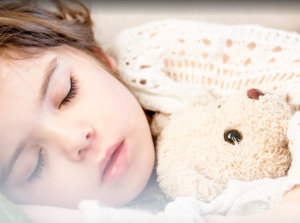 On my graduation day from high school, a good friend was given a fancy certificate for maintaining a record of perfect attendance every single year of his entire history of schooling. He hadn’t missed a single day since he started in kindergarten. Not for illness. Not for a death. Not for vacation. Not for anything. Not one day missed for 13 years. I remember how, in the months leading up to the end of our senior year, he balked at “senior skip day” and how he came to school with the flu and all sorts of other symptoms. He was determined to keep up his unmarred record and his teachers and classmates, myself included, egged him on. There was something I found respectable about his willingness to power through, as if he was some sort of martyr for having survived cases of pink eye and the chicken pox while concurrently completing his multiplication tables and learning state capitals. It does seem a pretty remarkable feat.
On my graduation day from high school, a good friend was given a fancy certificate for maintaining a record of perfect attendance every single year of his entire history of schooling. He hadn’t missed a single day since he started in kindergarten. Not for illness. Not for a death. Not for vacation. Not for anything. Not one day missed for 13 years. I remember how, in the months leading up to the end of our senior year, he balked at “senior skip day” and how he came to school with the flu and all sorts of other symptoms. He was determined to keep up his unmarred record and his teachers and classmates, myself included, egged him on. There was something I found respectable about his willingness to power through, as if he was some sort of martyr for having survived cases of pink eye and the chicken pox while concurrently completing his multiplication tables and learning state capitals. It does seem a pretty remarkable feat.
Now, a full-on grown up, I still fight an internalized message— one that says things like, “you’re not going to let a little thing like a cold stand in your way, are you?” Somehow, whether through a family cultural message or through a broader societal message, I seem to have gotten confused about the value of caring for myself and allowing my body to rest and heal. There are other underlying messages contributing, too, of course. Outright denial tends to complicate things as does my own family’s hesitation to pay for health care when I was a kid or to miss work due to the financial implications. These days, I’m usually able to engage with my rational brain in these instances, but it still takes a good amount of effort. Another thing that I understand much better now also is the importance of thinking about how my own actions impact others— that is, the spread of my illness to others is something that I take far more seriously, especially given who I work with at Intuition Wellness Center.
Today my fellow team members and I work with a vulnerable population of children and young people. Some of them are living with chronic illness, both physical and mental. It can be very difficult, even for a seasoned professional, to determine what symptoms are rooted in a physical ailment and what is purely emotional. Part of the difficulty is that, the more we understand, the more we realize that often they are not truly distinct parts or processes in our bodies. Symptoms such as fatigue, decrease in appetite, stomachaches and headaches could be part of the flu or an ongoing chronic “body-based” medical issue and they could also be symptoms of depression or anxiety. Those with chronic physical disease are also more susceptible to mental illness as the impact on their social relationships and everyday functioning can weigh heavily on their emotional health. Because proper diagnosis is more complicated when there are both physical and mental health issues, many people do not get proper care for one or the other or both. Mental illness is often associated with poorer diets and exercise routines as well, which make it both more difficult to stay physically healthy and to recuperate from physical illness as well as to improve from the mental illness itself.
Not everyone has been inundated with the same messages that I received as a kid. Among the team members I work with and the clients I see, many are stellar at listening to their bodies and giving themselves the proper time to rest and recuperate. We do often get the question from parents, however, as to whether they should bring their sick child in for their psychotherapy appointment. It does feel like a tough thing to navigate for some kids who seem to be so susceptible to illness that they rarely seem to be symptom-free come flu season. Many parents also do seem to understand that the discomfort of physical illness seems to intensify some of the symptoms of mental illness (and be intensified by mental illness) and want support for their children during this time. While often I do emphasize the importance of regular attendance in psychotherapy sessions, when a child is truly physically ill with something like the flu or has some other contagious condition, my answer is consistent— stay home.
Keeping your kids home from school, community events or their counseling appointments when they are sick helps them recover sooner and prevents them from spreading the illness to others. Staying home from an appointment with a team member at Intuition Wellness Center due to a contagious condition, also means helping to prevent particularly vulnerable children and young people from potentially catching something that could contribute to worsened mental illness as well.
But how sick is too sick for an appointment at Intuition Wellness Center?
• A temperature over 100 degrees;
• Throwing up or diarrhea;
• Pink and crusty eyes;
• Doctor states they should stay home;
• Too sick for school;
• Any other condition that is infectious/contagious/spreads (including head lice).
It may be ok to go to an appointment at Intuition Wellness Center if your child doesn’t have any other symptoms besides a runny nose and a little cough. However, it’s always a good idea to consult with your child’s pediatrician and call your clinician prior to the appointment.
Please help the Intuition Wellness Center community and other vulnerable populations to stay healthy by resting when you’re sick. At Intuition Wellness we consider clients staying home due to illness an important act of self care and waive our cancellation fee for such instances.
When is sick too sick for you or your child? Let us know in the comments section below how you can tell when your child needs extra rest so that other readers can benefit from your wisdom!
At Intuition Wellness Center we specialize in integrated behavioral health services and wellness programs for children, young adults and families and supporting other like-minded professionals in doing good work. Call us at 520-333-3320.
Written by: Brandy Baker, PsyD in collaboration with Co-Founder Yoendry Torres, PsyD & H.S. Intern Manasa Swaminathan


